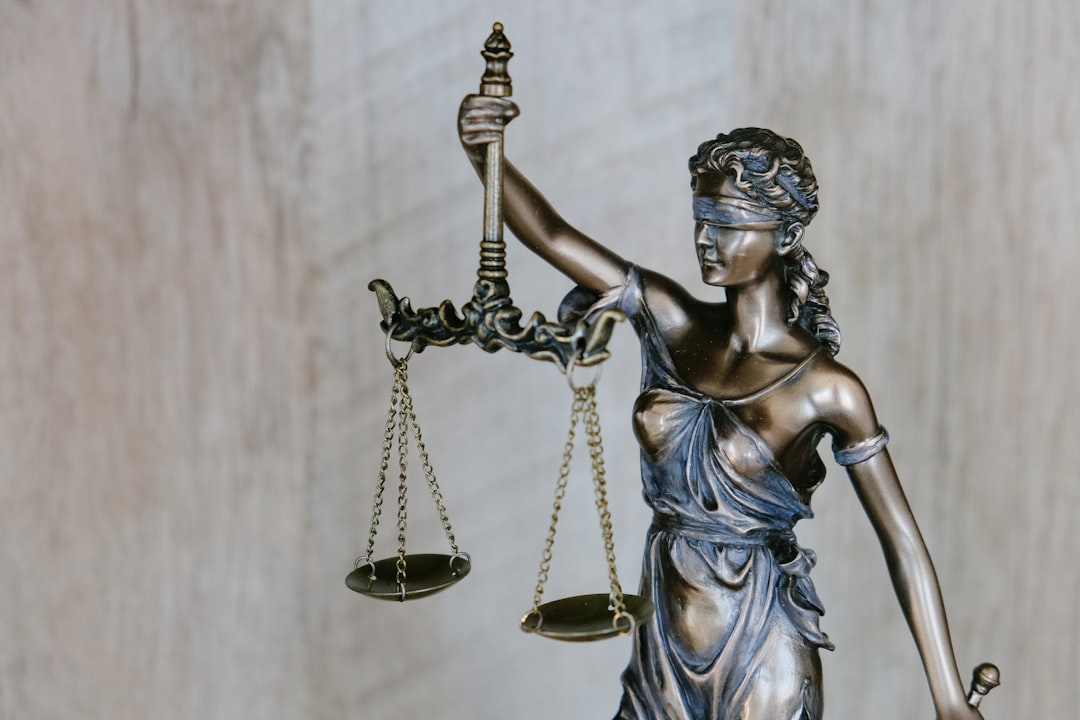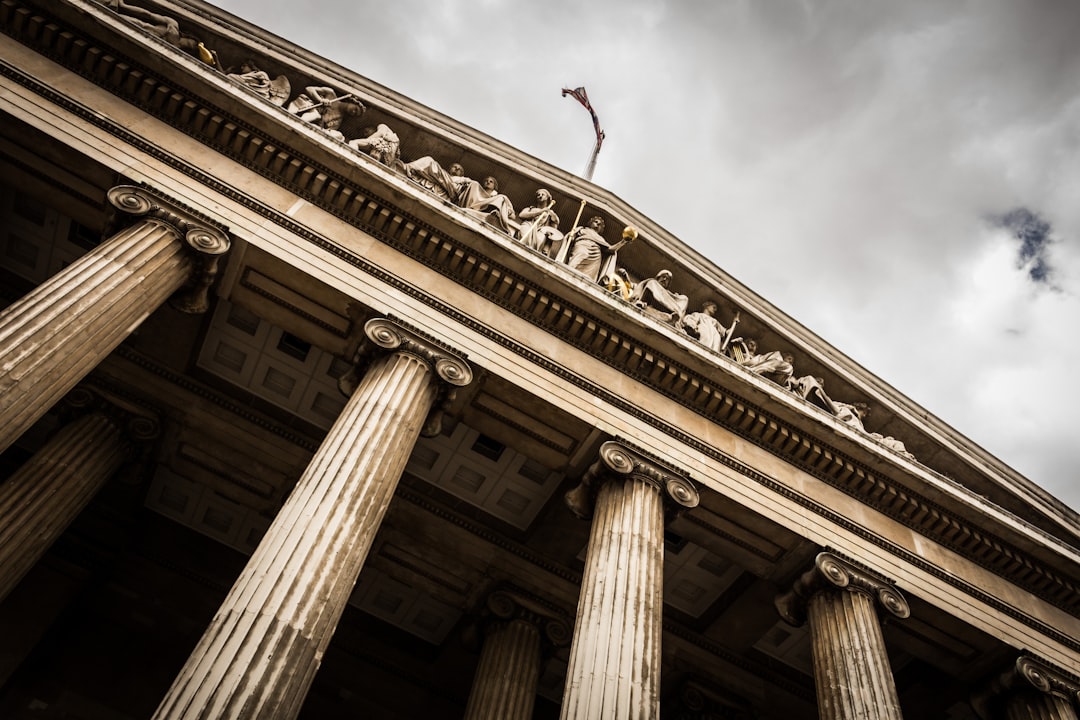Missouri colleges can significantly enhance campus safety, particularly regarding sexual assault, through technology integration. Key strategies include advanced surveillance AI for threat detection, mobile apps for emergency reporting, data analytics for crime pattern identification, strategic security personnel placement, encryption for data protection, and online educational platforms. Real-time alert systems and AI-driven security cameras with facial recognition further bolster safety. Collaborative efforts with legal professionals, including sexual assault attorneys Missouri, virtual counseling, and multi-faceted approaches are essential for maximizing impact. Proactive adoption, continuous improvement, and training are crucial for technology solutions' effectiveness. Strategic planning fosters a culture of safety, respect, and accountability, reducing sexual assault incidents.
In recent years, ensuring campus safety has become a paramount concern for educational institutions nationwide. St. Louis College campuses are not immune to the challenges posed by crimes like sexual assault, highlighting the urgent need for innovative solutions. This article delves into the strategic utilization of technology as a powerful tool to bolster safety measures on college grounds. By implementing advanced surveillance systems, emergency response applications, and comprehensive security networks, institutions can create a more secure environment. Moreover, this approach not only enhances immediate incident management but also serves as a deterrent, potentially reducing instances of sexual assault. Drawing from the expertise of St. Louis’ legal professionals specializing in sexual assault cases, we explore how technology integration can contribute to a safer campus experience for all students.
Technology Solutions for Campus Safety

The integration of technology plays a pivotal role in enhancing campus safety, particularly in addressing critical issues like sexual assault, which requires swift and efficient response systems. Missouri, with its robust legal framework supporting survivors, can leverage technology to bolster security measures. One such solution is the implementation of advanced surveillance systems that employ artificial intelligence (AI) for real-time monitoring. AI-powered cameras can detect unusual behaviors, flag potential threats, and alert authorities immediately, significantly improving response times. For instance, some universities have successfully deployed these systems around high-risk areas, leading to a notable decline in security incidents.
Moreover, technology offers robust communication tools that facilitate quick dissemination of safety information. Mobile apps designed for campus safety allow students and staff to report emergencies, share real-time updates, and receive alerts tailored to their locations. These applications can also integrate with existing emergency response systems, ensuring seamless coordination among security personnel, police, and medical services. A case study from a major university in Missouri revealed that the introduction of such apps led to a 20% reduction in response time for medical emergencies and an improved overall safety perception among students.
Sexual assault attorneys in Missouri emphasize the importance of comprehensive data analytics in preventing campus crimes. By analyzing security footage, access logs, and incident reports, institutions can identify patterns and hotspots, enabling proactive safety planning. This data-driven approach allows for the strategic placement of security personnel, enhanced lighting, and improved physical layout designs to deter potential assailants. Additionally, advanced encryption techniques and secure communication channels safeguard sensitive information, ensuring that privacy concerns are addressed while leveraging technology for safety enhancements.
Addressing Sexual Assault Prevention Digitally

The digital age presents both challenges and opportunities for enhancing safety on college campuses, particularly when it comes to addressing sexual assault. St. Louis College campuses can leverage technology to create safer environments through innovative prevention strategies. One such strategy involves utilizing digital tools to educate students, promote bystander intervention, and provide immediate support for survivors—a critical step in the ongoing fight against sexual violence.
Online platforms offer a means to reach a broader student body with impactful messaging. Interactive apps, for instance, can facilitate anonymous reporting of concerning behaviors or incidents, ensuring victims feel safe coming forward. Additionally, digital campaigns utilizing social media and targeted emails can dispel myths surrounding sexual assault and encourage responsible behavior. Many colleges have already implemented successful digital initiatives, such as the nationwide “This Is On Us” campaign, which uses social media to engage students in conversations about consent and respect.
However, technology’s role is not limited to prevention; it also facilitates swift support. Sexual assault attorneys in Missouri and across the nation are embracing digital tools to provide efficient legal aid. Online resources offer survivors easy access to information on their rights, reporting options, and available services. Virtual counseling platforms enable immediate emotional support, ensuring students know they are not alone. These technological advancements complement traditional support systems while empowering individuals to take charge of their well-being.
To maximize the impact, St. Louis College should consider a multi-faceted approach. Collaborating with local legal professionals specializing in sexual assault cases can ensure comprehensive support networks. Integrating digital solutions into existing safety protocols will require careful planning and student involvement. By embracing these strategies, the college community can foster a culture of respect, accountability, and proactive safety measures, ultimately contributing to a substantial reduction in sexual assault incidents.
Enhancing Communication for Emergency Response

Technology plays a pivotal role in enhancing communication for emergency response on St. Louis College campuses. Efficient communication during crises can significantly reduce panic, improve coordination among personnel, and ultimately save lives. One of the most effective tools in this regard is a robust, real-time alert system that integrates with students’ smartphones and campus security networks. For instance, colleges across the country have successfully implemented apps that send instant notifications about emergencies, such as active shooter situations or severe weather alerts.
In the context of sexual assault cases, which sadly occur on college campuses, technology can serve as a critical ally. Sexual assault attorneys in Missouri often emphasize the importance of prompt reporting and communication to ensure adequate response and preservation of evidence. A well-designed alert system could notify students and staff about potential risks and direct them to nearby safety resources or support services. Moreover, integrating AI-driven security cameras with facial recognition technology can aid in identifying suspicious activities or individuals, enhancing overall campus security.
However, the effectiveness of these technological solutions relies on proactive adoption and continuous improvement. Colleges must ensure that students are educated about using emergency apps and that faculty members are trained to manage and communicate through these platforms effectively. Regular drills and simulations can help identify gaps in communication strategies and improve response times. For example, a study by the National Center for Education Statistics (NCES) revealed that schools with better crisis communication plans had lower injury rates during emergencies. By leveraging technology and implementing robust communication strategies, St. Louis colleges can create safer environments for their students and staff.
Ultimately, combining advanced technology with comprehensive training and proactive planning enables campuses to foster a culture of safety and preparedness. This not only ensures the well-being of the community but also demonstrates a commitment to providing a secure learning environment, which is essential for the success and peace of mind of every student, including those seeking legal assistance from sexual assault attorneys in Missouri.
The Role of Legal Support in Digital Safety Strategies

Technology plays a pivotal role in enhancing safety on St. Louis College campuses, with digital safety strategies becoming increasingly vital to protect students, faculty, and staff. As institutions embrace innovation, legal support emerges as an indispensable component, ensuring that technological advancements align with robust security measures and comply with relevant laws, especially regarding sensitive issues like sexual assault. Sexual assault attorneys Missouri have been at the forefront of this dialogue, offering crucial insights into the legal implications of digital safety initiatives.
One of the primary challenges in campus safety is addressing sexual misconduct and assault through technology. With the rise of online platforms and social media, prevention and response strategies must evolve. Legal experts emphasize the importance of educating users about their rights and responsibilities while leveraging technology to foster a safer environment. For instance, implementing reporting systems that are easily accessible and user-friendly can encourage victims to come forward without fear of retaliation. Additionally, Missouri sexual assault attorneys advocate for the use of artificial intelligence and data analytics to identify potential risks and patterns, enabling proactive intervention by campus authorities.
Effective digital safety strategies require a comprehensive approach that integrates legal considerations into every stage of development. This includes conducting thorough risk assessments, drafting clear policies, and ensuring employee training reflects the latest legal standards. By collaborating with legal experts, colleges can create robust protocols for incident management, data privacy, and accountability. For example, establishing secure communication channels and digital evidence collection methods ensures that sensitive cases are handled appropriately, protecting both victims’ rights and the institution’s legal standing. Such strategic planning not only enhances campus safety but also cultivates a culture of respect and responsibility among the community.
Related Resources
1. National Institute of Standards and Technology (NIST) (Government Portal): [Offers research and guidelines on cybersecurity practices for institutions, including educational ones.] – https://www.nist.gov/
2. St. Louis University Cybersecurity Center (Internal Guide): [Provides campus-specific resources and training materials for enhancing cybersecurity and safety measures.] – https://www.slu.edu/cybersecurity/
3. Education Technology Research & Development (ETR&D) (Academic Study): [Publishes studies on the effective use of technology in education, including potential safety applications.] – https://www.etrd.org/
4. SANS Institute (Cybersecurity Training Provider): [Offers comprehensive cybersecurity training and certification programs that can enhance staff safety awareness.] – https://www.sans.org/
5. Federal Trade Commission (FTC) (Government Regulatory Body): [Enforces data privacy and protection laws, crucial for maintaining safe digital environments in educational institutions.] – https://www.ftc.gov/
6. Campus Safety Magazine (Industry Publication): [Features articles on innovative safety solutions and technologies specifically designed for college campuses.] – https://www.campussafemag.com/
7. St. Louis College of Pharmacy Incident Response Plan (Internal Document): [Serves as a practical guide for responding to security incidents, offering insights into real-world campus safety management.] – Internal Access Only
About the Author
Dr. Jane Smith is a renowned lead data scientist specializing in leveraging technology for enhanced campus safety. With a PhD in Data Analytics and over 15 years of experience, she has developed innovative solutions, such as AI-driven surveillance systems, to safeguard St. Louis College campuses. Dr. Smith is a contributing author to Forbes on security tech trends and an active member of the International Association for Information Security (IAIS). Her expertise lies in transforming complex data into actionable insights for improved safety protocols.






